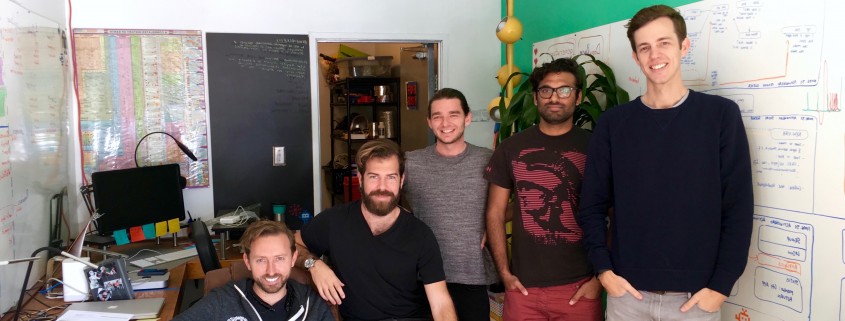USC Alumni create app that regulates smartphone use
A new app made by Trojan alumni looks to ease people’s addiction to their apps.
Ramsay Brown, T. Dalton Combs, Vince Enachescu and Akash Desai created Space to encourage a healthier relationship between mobile devices and users.
Brown graduated with a master’s degree in neuroinformatics in 2015, while Enacheschu and Combs earned doctoral degrees in neuroscience and neuroeconomics, respectively, in 2016. Desai completed a bachelor’s degreee in computer engineering in 2015.
The team makes up Dopamine Labs, a group of scientists in Venice, Calif. The app works by loading a pause before opening an actual application.
While Space is currently free on iOS Safari and will hit the Android market in the near future, it is unavailable on the iOS App Store.
According to Brown, Apple denied Space a position in the app store “on the grounds that an app that encourages people to use their iPhone or other apps less is inappropriate for the App Store.”
“If you are bored, angry, hungry, stressed, there’s an app that has been explicitly designed to be your little band-aid,” Brown said. “They are designing it in a way though, that doesn’t give you freedom of choice. They are all competing to be your habit and your addiction, and they talk about it very explicitly.”
Team members at Dopamine Labs explained that the brain will continue a certain behavior until it reaches an end point. For example, the feed never ends in Instagram’s infinite scroll and Netflix’s 10-second countdown to the next episode. There is no reason to stop engaging in the application’s activities.
According to Dopamine Labs, human brains establish associative behaviors. When a consumer receives positive feedback from an app such as Snapchat or Instagram, brain synapses involved with addiction enlarge. Space aims to break down the connection in enlarged synapses. When an app delays and a user fails to immediately receive a surge of information, the brain’s natural mechanisms shrink those connections due to its delayed response.
Dopamine Labs has an application program interface unrelated to Space, which attempts to increase app addiction. To create Space, the team took the same math and principles of the Dopamine API and ran them in reverse. The result is that consumers became un-addicted to the app. Now, anybody could reclaim control from an application they feel dependent on through Space.
By giving the user a new app icon instead of the original one, Space immediately adds a moment of zen to the subconscious when on the home screen.
Dopamine Labs uses artificial intelligence to modify the breathing delay by monitoring the user’s recovery time from the app. This “calm barrier” to the original app allows the brain to unhook from the detriments of app addiction and aids in giving control back to the user, rather than the app.
According to Brown, addiction to mobile applications can be like a nicotine addiction. Brown said that app developers use more money, more math and more research to hook people, which is analogous to cigarettes.
“Cigarettes aren’t just bad because they hurt you — they’re bad because they rob you of choice,” Brown said. “They’re designed to be smoked compulsively. In the same way, these technologies are designed to make you chemically crave technology.”

